The technology care homes are now implementing to improve quality of life


By Rishi Sodha, Care Director at Priesty Fields Care Home
Before the first brick has been laid in the construction of today’s care homes, decisions will have already been made on the type of technology to be used to enhance the lives of those soon to be living and residing in the premises.
Set to open its doors next month, Priesty Fields, a 78-bed purpose-built nursing care home, in Congleton, Cheshire, is one of many new homes across the UK planning to implement technology that helps to deliver outstanding care and in turn, improve staff and residents’ overall quality of life.
Listed below are some of the key technologies commonly found in today’s social care environments, including Priesty Fields.
Digital Technology
Person-centred technology – care systems such as Mobile Care Monitoring by Person Centred Software allow care providers to digitally plan, record and monitor the care of residents. This, in turn, allows staff to spend more time with residents by reducing the time it would take to physically transcribe care notes. Some digital care systems enable information to be shared with the NHS at a click of a button, ensuring residents receive the care they need, when they need it.
Video call technology – software such as the Relatives Gateway allows residents’ family members to interact with them in real-time. GP Connect – this innovative piece of software allows GPs and care homes to share information seamlessly. EMAR – another piece of software that efficiently improves care management. The best EMAR solutions allow pharmacy staff to see changes made by GPs to a resident’s medication in real-time. PainChek – this system uses AI technology to analyse facial cues and recognise signs of pain in those who cannot verbalise, allowing for quick and effective pain relief.
CLB Acoustic Monitoring – this intelligent nurse call system allows residents to have a good night’s sleep due to staff not having to physically go into their rooms as often to perform routine night checks. Priesty Fields will be trialling an AI system that will learn the normal acoustic patterns for a resident and raise an alert when something unfamiliar is picked up. Smart doorbells and intercoms – these allow staff to see who is at the door without having to physically leave the residents, which is particularly convenient during night hours.
Infection Control Technology
Stabilised Aqueous Ozone (SAO) – when used as a detergent, SAO is clinically proven to kill COVID-19 virus particles within 60 seconds of contact and is completely chemical-free, meaning it avoids causing skin irritation to residents and staff, as well as potential accidents. It works by injecting normal tap water with volts of electricity and can provide odour control as well as infection control, by being applied as a normal cleaning product. Areas of a care home can also be treated using equipment such as a Motor Scrubber Storm, which is a portable backpack kit that allows care staff to spray entire rooms with a fine mist of SAO. Probiotic solutions used in conjunction with detergent and disinfectants – this process can provide surfaces with active protection against virus contact. UVC air filtration – by using a UVC and HEPA H13 air treatment system, care providers can eliminate airborne pathogens in an area up to 250m2 around the device. This is especially important as the World Health Organization has finally recognised COVID-19 as an airborne virus. Physical Technology
High-end Kitchenettes – these units can be used to help stimulate appetite through the use of enticing smells, while safe-to-use Quooker taps promote independence by allowing people to make their own hot drinks, especially when they have loved ones visiting. Gym/Physio rooms – Priesty Fields’ gym and physio room is being designed in conjunction with Oomph! to promote mobility in residents, helping them maintain independence for as long as possible. Safety doors in key rooms/areas – these doors can be opened via a push or pull by the maintenance team so, if there is an obstruction, easy access can be gained into a room by staff or emergency services. Overall, new technologies are continually entering the social care market with a focus on improving productivity and efficiency for staff, and in turn, the health and happiness of residents, which, ultimately, is to be applauded and encouraged.
Rishi Sodha is the Care Director at Priesty Fields Care Home, a luxury 78-bed care home in Congleton, Cheshire. Set to open in early June, the state-of-the-art, purpose-built residential care home will offer prospective residents space where they can maintain their independence and live fulfilling lives.
Nestled in a green residential area close to the market town’s centre, the home will include 78 spacious en-suite bedrooms, along with a gastropub, farmers market cafe, cinema, spa, salon, gym, library, private dining room, garden lounge, and a GP office.
The home is run by Handsale, a group of eight care homes across England, Scotland and Wales providing innovative care to its users through digital care plans, secure medication delivery, and 24/7 management. The group prides itself on empowering staff to provide outstanding care by putting wellbeing and community at its centre.
click here for more details or to contact Priesty Fields Care Home
Latest Care Provider & Regulatory News
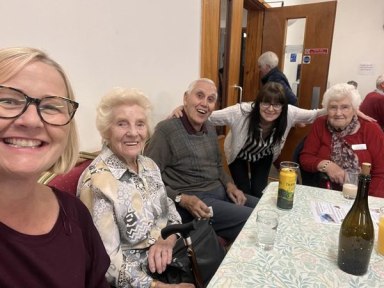 24-Sep-28
Night out
24-Sep-28
Night out
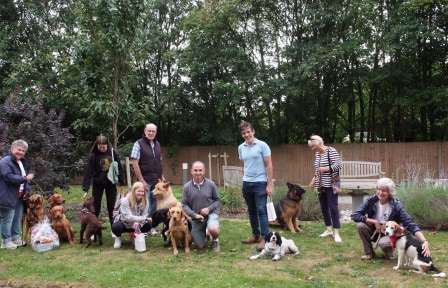 30-Aug-25
Waterside Court Dog Show 2025!
30-Aug-25
Waterside Court Dog Show 2025!
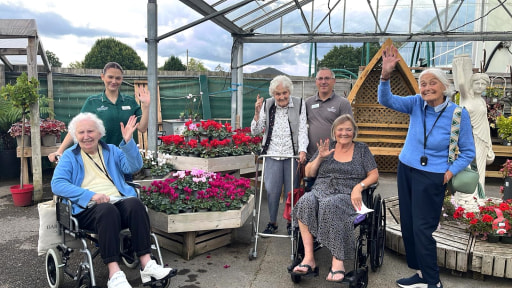 30-Aug-25
Edwin's Garden Centre
30-Aug-25
Edwin's Garden Centre
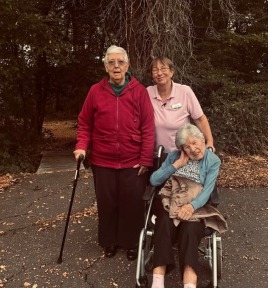 29-Aug-25
Neighbourhood Walk
29-Aug-25
Neighbourhood Walk
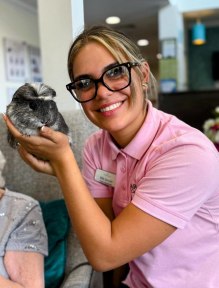 29-Aug-25
A fond farewell to Ellis
29-Aug-25
A fond farewell to Ellis